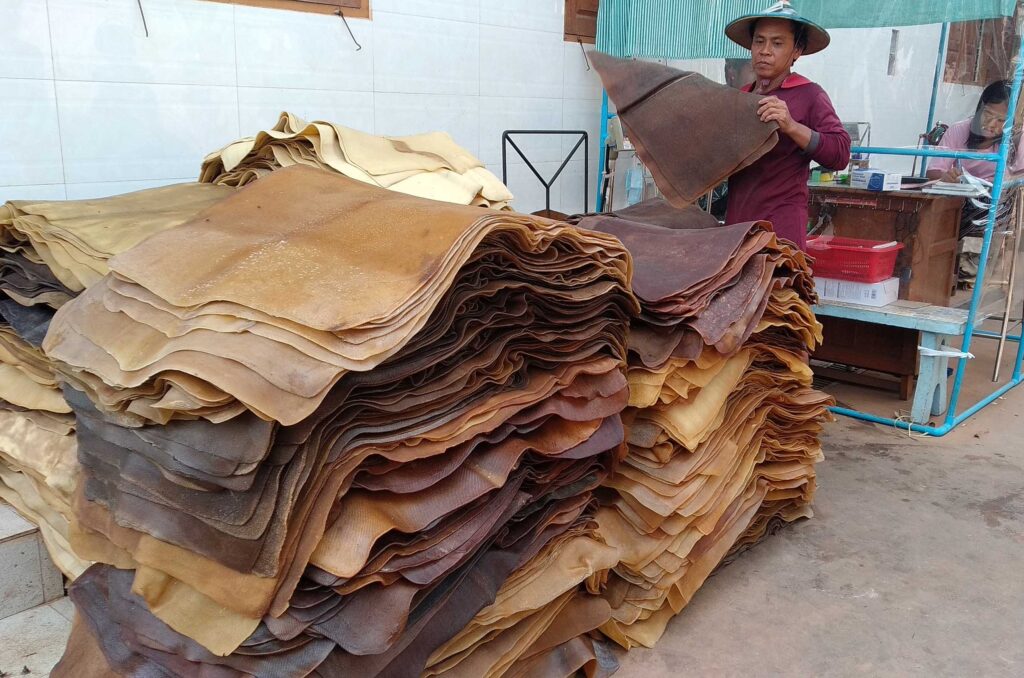Mawlamyine, July (18)
The military council’s unnecessary restrictions led to a sharp decline in rubber purchases by foreign countries, and the market collapsed, rubber suppliers in Mon State told Than Lwin Times.
Rubber from Mon State is being exported to China, Thailand, India, South Korea, Malaysia, and Singapore through the border and sea routes.
Due to the military council’s trade limitations and restrictions that export earnings must be converted into Myanmar kyats at the reference price, the market was in chaos, affecting the rubber sector.
The military council directed that 65 percent of export earnings be converted into Myanmar Kyats in November of last year, but only 50 percent of them were set to be converted starting this month.
A rubber trader said, “The military council’s wrong policies caused the market to collapse in the last rubber season, and now the price cannot be set. In the 2022–2023 budget year, the central bank ordered that 65 percent of the export earnings on rubber products be converted into Myanmar kyats at the reference rate, and only 35 percent is allowed to be exchanged at the exchange rate in the open market. Countries including China, Korea, and India have completely stopped trading”.
The fall in foreign rubber purchases is primarily due to the military council’s incorrect policies and the decline in rubber quality. The military council has done nothing to improve rubber quality.

A rubber trader told Than Lwin Times that due to high input prices and junta restrictions during the previous rubber season, they were unable to sell at the set price for rubber and were therefore unprofitable. Last year, sellers got as much as $0.60 per pound of rubber.
The rubber sector of Mon State, which is mainly dependent on the China and Thailand, has collapsed due to the restrictions of the military council as well as the decline in the quality of rubber. If those countries stop purchasing rubber, the rubber traders in Mon State are on the brink of the disappearance of the rubber market.
On the other hand, after the military coup, the price of inputs increased more than four times, making rubber farmers unable to use the inputs, resulting in low yields and some farmers suffering losses.
During the current rainy season, rubber farms are closed, rubber transactions are halted, and only entrepreneurs with a few rubber stocks are trading.
Mon State has more than 500,000 acres of rubber plantations, producing more than 100,000 tons of rubber every year, earning millions of US dollars from that sector.
News – Than Lwin Times
Photo: CJ


